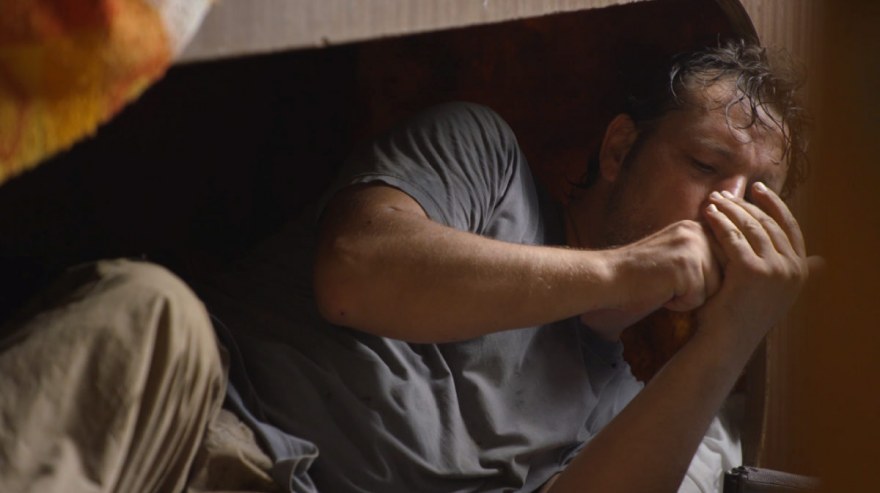Tea Time with Des hommes à la mer (Men at Sea)
An interview with Lorris Coulon, director of Des hommes à la mer (Men at Sea)
What was it like filming at sea?
On the trawler/set, we were lucky enough to have a great crew that welcomed and helped us. They not only agreed to the specific conditions necessary for filming, but also helped with staging by showing the actors how to move and what maneuvers to make. Both sides collaborated whole-heartedly. As for the sea itself, it was calm except for one night when we had to turn back and finish a scene at the dock.
What kind of background research did you do beforehand? Did you have any personal knowledge of the sea?
During the writing stage, I wasn’t concerned with realism, I was only moved by the desire to tell a story that I thought was universal and timeless. Afterwards, I did a lot of research to polish the aims, identify errors and try to correct them. Finding the right balance between a documentary approach and my fictional aspirations was a lengthy internal struggle. During scouting, I spent time at sea on the trawler with the fisherman to gain knowledge from being around them and to anticipate some of the difficulties of filming.
Can you tell us a little bit more about how you chose the actors?
I wanted the film to be both realistic and a deeply imaginary space loaded with symbols. As such, I tried to find actors who had life experiences outside of films. The constraint of geographical origins narrowed the number of possibilities since I wanted them each to speak their native language. In the film you can hear Mandarin, Wolof, Arabic and English. On the set, I couldn’t understand what they were saying, which created a relationship of trust and autonomy that was very pleasant. The actors in this film are very generous people and I was lucky to meet them.
Is the film’s plot inspired by a particular event?
My previous film, Si la mer se meurt [If the Sea Dies Out], is about a child – Sékou – who runs away in order to follow a pirate who attacks trawlers as a means of survival. On the last day of filming, I felt a wrenching need to tell the story of the crew, in the distance, that steals the halieutic resources of people in precarious living circumstances. I felt that they were also prisoners of a globalized system where each person’s survival comes at the expense of others’. That’s why the grown-up version of the character Sékou is on the trawler. By trying to escape being a victim, he becomes a predator.
Have you discovered any advantages that the short film form provides?
I absolutely love being on a set with actors. Writing, finding backers, preparing… it’s all very long. The longer the filming lasts, the better I feel!
If you’ve already been to Clermont-Ferrand, could you share with us an anecdote or story from the festival? If not, what are your expectations for this year?
I think it’s great watching how the film and its audience come together. The Festival will be an opportunity to discover many films and to share ideas about making them. A congenial way of feeding your imagination.
Des hommes à la mer (Men at Sea) is part of National Competition F7.









